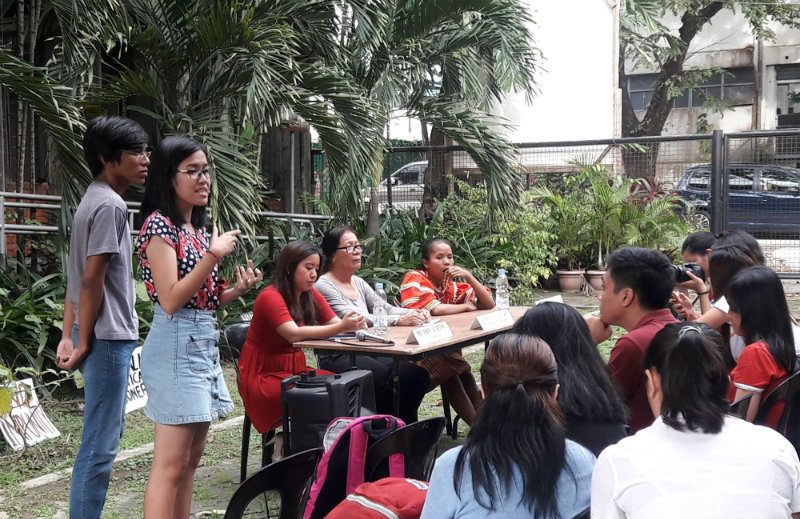SUMMARY
This is AI generated summarization, which may have errors. For context, always refer to the full article.

MANILA, Philippines – Mark Kevin Reginio and John Reczon Calay were still high school students 8 years ago, when news about the worst case of election-related violence broke out. They had a vague understanding of the significance of the incident.
In 2009, Esmael Mangudadatu challenged Andal Ampatuan Jr, a member of the powerful Ampatuan clan in Maguindanao, for the position of governor. Mangudadatu’s supporters, family, and members of the media were on their way to the provincial capitol for the filing of his certificate of candidacy when their convoy was attacked.
Of the 58 individuals who were slain, 32 were media practitioners or employees of media companies.
On Thursday, November 23, it had been 8 years since what the Committee to Protect Journalists calls the single deadliest attack against the media.
Eight years later and with a renewed understanding of the significance of the tragedy, Reginio and Calay, now studying journalism at the University of the Philippines, attended the “Break Free 2017: Press Conference.”
The press forum organized by the Union of Journalists of the Philppines (UJP) called for an end to the culture of impunity and state violence in light of the 8th anniversary of the Maguindanao massacre.
Unity in the journalism profession
Nearly a decade since the the killings, there has yet to be a conviction. None of the 188 officially accused is serving time. Even Sajid Islam Ampatuan, one of the main suspects, was released on bail.
For UP students Reginio and Calay, one way to improve the proceedings of the case is to end the culture of impunity in the Philippines, wherein people within a group feels entitled that they are exempt from punishment. This can be done, according to the students, through asserting human rights and social justice.
They said that campus journalists play an important role in raising awareness about the issue by continuously reporting the developments of the case and sharing how the gruesome crime still affects the victims’ families 8 years later.
“Unity among us in the profession is a very vital step toward attaining justice,” said Calay, an active member of UJP-UP.
The best way to engage people and remind them about the massacre, according to the journalism students, is through social media.
Candle lighting in Bacolod
Aside from the commemoration activity organized by the campus journalists, a nationwide commemoration by the National Union of Journalists of the Philippines (NUJP).
In Bacolod City, members of the Negros Press Club and NUJP Bacolod held a torch parade and candle lighting by the families of the victims, students, and various groups.
“Just as important as convicting those responsible for this most gruesome of crimes is the need for state accountability,” said NUJP national director Nonoy Espina. – with a report from Marchel Espina/Rappler.com
Iona Mendoza is a Rappler intern. She is studying journalism at the University of Santo Tomas.
Add a comment
How does this make you feel?
There are no comments yet. Add your comment to start the conversation.